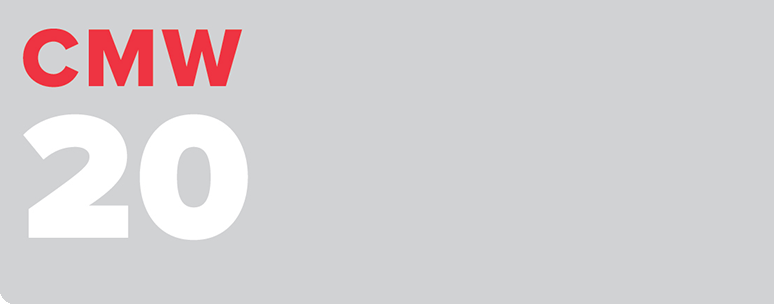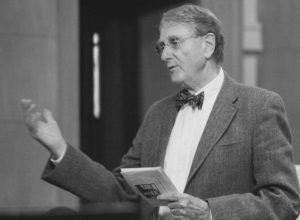David Bourns
David Bourns joined the board of Community MusicWorks in 2010 following a career in education, first at George School, a Quaker high school in Newtown, Pennsylvania, and then at the nationally recognized Paul Cuffee Charter School in Providence, where he served as Head of School from its inception in 2001 until retiring in 2010. Making a difference in a world where race and poverty curtail opportunity has been a driving force in his life, from his early foray into politics to his work with non-profits and success in increasing diversity at George School, although he is too modest to highlight any of these achievements himself. A Quaker with a master of divinity degree, David feels strongly that all voices must be heard and that decisions made through consensus withstand the test of time. Besides music, David loves literature. During his tenure, he opened many a CMW board meetings with a poem. He continues to volunteer as an honorary board member.
I was on the board of CMW for six years and president of the board for five of those years. It was a very important experience for me. I was just retiring from being head of Paul Cuffee Charter School when I got involved. CMW knew of my interest in issues of leadership and governance and invited me to join the board. My wife Ruth and I had attended several concerts. We liked the people and we liked the music.
I’ve enjoyed classical music since high school. I remember buying a lot of Aaron Copeland records. I think that’s pretty easy music to enjoy. I did play the piano for three weeks. [Chuckles] And I did play the cornet for two years at junior high school, so I did put my toe into the water.
The most satisfying part of working with CMW is the combination of getting to work more closely with board members and getting to know the musicians. It’s a hands-on thing. You develop friendships and relationships so that when you go to concerts there are a lot of people there whom you know, and when you go to board meetings these are friends of yours. These are not stiff relationships. These are all people committed to CMW. So the relationships with board members, the players, the Fellows, became important to me, and of course, I just continued to love the music.
The other thing that’s been nice is I’ve learned a lot more about the music. I’ve learned that Schubert is probably my favorite composer, if I had to pick one, but I listen to a lot of Brahms, too. Now, with Spotify, I can go to a concert and find a composer I like or hear it on the radio and then I write it down and get it on Spotify so I can look into it whenever I want to. That’s been a nice way of learning more about the pieces that I like and the composers that I like and enjoying them.
When I was the head at Paul Cuffee School, I knew that some of our students were also students at Community MusicWorks, but it wasn’t until later that I learned how important CMW was to these students. I made some comment to a parent about what a great family this family was, and how I suspected that Paul Cuffee School was a kind of second home, and it turns out that I was wrong–CMW was the second home for this family.
The most challenging and the most frustrating thing for me is that I think an important function of board members, and particularly of the board president, is to know people in the community and to cultivate their interest in Community MusicWorks. It takes time to develop those relationships, and then it takes time to build on those relationships further, and it takes time and effort to bring those people to concerts and so on. And though I knew Paul Cuffee parents and that community well, my knowledge of the wider Providence community wasn’t great. So I wish that I had known more people that I could bring in.
I’ll mention a couple of organizational challenges. One of the challenges is: Have we been successful enough with finding a way to share our success with the wider public? They know about our music, and many people would say just what I said about getting to know the musicians and looking forward to hearing this or that musician’s performance. And people know that the other half of our work is to teach students, but in much of Providence, our students aren’t known. Generally speaking, people don’t know or appreciate the degree of success we have with students. I have thought for a long time that it would be helpful to find a way to communicate more about what our kids and graduates do.
Another communication challenge is showing how the students develop relationships with one another. They bond with the CMW community. I think they develop a real interest in what it means to be responsible citizens. But that information and that important work and those areas of growth by our kids are not generally known by the public. I remember Sebastian saying that our goal, if one had to put our goal into a simple sentence, wasn’t to create a professional musician, it was to create a college graduate. And so somehow communicating that narrative to people, letting them know that what we’re up to is a little more complex than it appears to be. We are more successful with it than many people may know, and well, there’s a lot for us to share.
I am in favor of broad ownership by an organization’s participants. Unless everybody owns it, it’s less likely to be something the organization will succeed at. In order for the board members to own a strategic direction or to own a difficult decision, it’s important for them to have a time to talk about it with one another and to be sure that each of them feels heard, and out of that a kind of discernment takes place. I think that discernment process is better than just voting on something.
Even in small or less formal organizations, it’s important to be clear about what an organization is trying to accomplish, what steps are going to be taken to get there and who’s going to take them, and how we’re going to measure the outcome. So part of what I value is clarity about organizational process and organizational goals.
Most of my professional work has been in education and most of it has been in private schools. After my 21 years at George School in Pennsylvania, where I believe that we had a wonderful culture of quite diverse and varied international programs, I was interested in seeing whether it was possible to create that kind of culture in a public school. What would stand in the way? I was interested in seeing whether in a public school, where students are admitted by lottery and the majority are poor or at least not wealthy, it’s possible to create that kind of academic community. I ended up believing that it is possible and I ended up being puzzled. I don’t quite understand why we don’t have better schools. And I think good public schools are in many ways so much at the heart of a healthy country.
I think the culture of CMW is very much the same as a good school’s. The tone and spirit is one of affection and enthusiasm. There are clear expectations that CMW has of its students. The relationship among students is one of friendship and respect. I believe the kids really like the teachers. It’s clear the teachers have a lot of affection for the students. Discipline becomes a minor problem rather than a major problem. Students are here to learn to play music and to be with other kids who are doing the same thing and to be with adults who really care about them and are skilled enough to make that happen.
One of the challenging questions for any organization working with children is, what is it we expect of their parents? Some organizations do quite well because they keep parents at a distance. Other ones do well because they involve the parents. So to what degree should we involve parents in what we’re doing?
And that relates to the larger question too of our sense that we’re a part of the neighborhood. We perform in the neighborhood, we get the neighborhood curious about who we are, and we hope that what we do and the way we do it is a way of generating trust in the community and trust in the neighbors. And I think that’s really very hard to do. It’s hard to do anyplace, but it’s hard to do when the product you’re peddling that is classical music is something that most people are not familiar with or may not have time to enjoy. So I think it’s important that we’re experimenting with that, trying different kinds of music.
I do think music affects our spirits. I think we all know that regardless of whether we like folk music or hard rock or something else, music does something for us. The different kinds of music enlighten us and engage us in different ways. Music probably has the greatest transforming potential.
I’m told that one of the first things that Hitler and the Third Reich did in Germany in the thirties was to get rid of the middle level of social involvement. Imagine, if you can, three levels of social involvement. One is the family level; we are involved with our own families. And the second is organizational; larger organizations like the PTA or Kiwanis Club or the Girl Scouts or CMW. And then the high level would be government; congress people, senators, so on. It is critical that the middle level be functioning because it’s at that level that people interact with one another and they learn from one another and they can teach one another. And if that middle level isn’t functioning well, then there’s no way for the people at the bottom level, you and I in our everyday lives, to somehow shape what the people at the top do.
There’s big criticism right now about how we tend to communicate only with the people who share our values–my Facebook people and your Facebook people and so on. CMW cuts across that and brings together people who otherwise wouldn’t know one another and who can learn from one another. And I think that’s missing in our country for all the reasons that people have identified.

